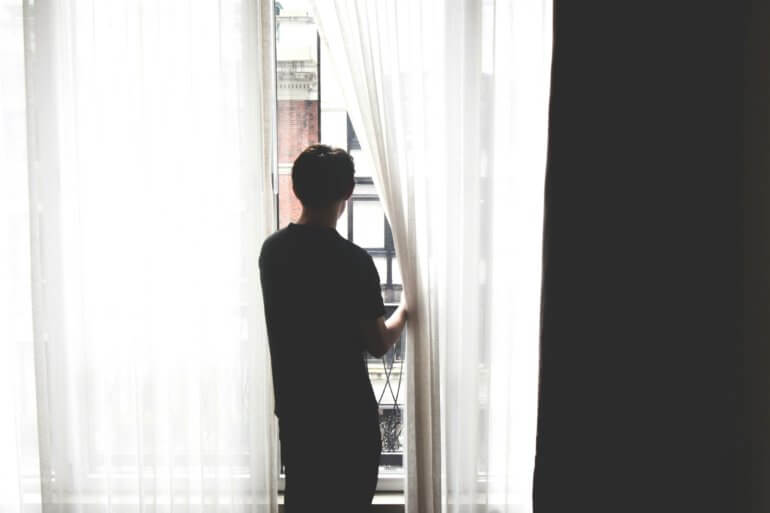
Anxious About Antisemitism? Try This
I didn’t sleep through the night for a month after October 7th. I woke up at 4am, frustrated because I needed the rest, but something wouldn’t let me rest. Like many Jews, I learned about the massacre from a police officer who stands guard at a local synagogue. As chag (the holiday) carried on, people spoke in hushed tones about the horrors that were waiting for us once we turned our phones back on — that we were going to witness the wholesale slaughter of our brothers and sisters. For a week, major institutions, countries, governments, and social media “Stood With Israel.” Although it was performative and shared with “thoughts and prayers,” they recognized the truth for a brief moment. Our enemies correctly surmised that this is a spiritual war, and attacked us in a way to degrade, defile, and show their might over the innocent. Their goal was to harm us physically, psychologically, and spiritually.
Since then, the coverage of the war has reinforced a singular message. We are not welcome in our homeland. We are not welcome in Europe. We are not welcome in the United States. From President Biden’s refusal to take a strong stance in defense of the sole western democracy in the Middle East, to the “urging restraint” in response to both 10/7 and the Iranian attempted missile and drone strike, to his “both-sides”-ing the conflict on college campuses, we continue to be a diasporic nation that stands alone.
When faced with anxiety about the state of worldwide antisemitism and our homeland at war, many American Jews have expressed the same sentiment to me. They can’t sleep either, they are focused on the news, they can’t stop seeing the faces of our slain brothers and sisters, they worry about their own vulnerability in their homes, schools and synagogues. I used to take trips to the firing range with just a few friends. Now, there are 14 of us that are first-time gun permit applicants. More than ever, American Jews are aware that nobody is coming to save them, and they have to take their safety and defense into their own hands.
Once people have secured their homes, added security for their synagogues and schools, the anxiety still looms. Some low-level anxiety is optimal for the efficient performance of life’s responsibilities, but when it gets to be too much, it’s debilitating. Psychologists Robert Yerkes and John Dillingham Dodson first described the Yerkes-Dodson Law in 1908. Their experiments with rats showed that mild electrical shocks motivated the rats to complete a maze. However, when the shocks became too strong, the rats became overwhelmed and started moving randomly to escape. This principle applies to human experiences as well, such as the anxiety felt before an exam. While some stress can enhance focus and memory retention, excessive anxiety can hinder concentration and recall, making it harder to perform effectively on the test. The “Yerkes-Dodson” rule applies in our situation too. If we are too anxious, we just won’t be able to function. Some anxiety is warranted and helpful. It helps us remain alert to potential challenges, it helps us remain situationally aware, and it helps us de-escalate calmly when faced with any public antisemitism. The challenge is when we are overwhelmed by anxiety to the point that we cannot function in our daily tasks, or when we lose our will to engage in anything that may pose a risk because of our fear of the possible outcome. Let’s explore an innovative method for stopping the excesses of anxiety: the DARE method.
The DARE Method was developed by Barry McDonagh, an Irish psychologist, who noticed that many of his clients would become anxious in a situation where they wouldn’t be able to control it, then, it would get the best of them and they would be embarrassed by their anxiety. His method encourages anxious people to:
- Diffuse: separate yourself from the anxiety-provoking thoughts and see anxiety as a passing sensation rather than a constant threat
- Allow: Instead of resisting or fighting against anxiety, this step encourages you to allow the anxious feelings to be present without judgment.
- Run Towards: Instead of avoiding an anxiety-triggering situations, actively engage with the situation you fear to desensitize anxiety-inducing situations, but in all your life’s activities with a newfound confidence that your anxiety will not derail you.
- Engage: This step encourages you to live a full life despite anxiety, promoting a focus on meaningful fulfilling activities. Engage not only in the “Run Towards” anxiety-triggering activities, but
How does this apply to the worried Jews of the diaspora? The first step actually comes before the dare response, which is assessing your surroundings. Just as a person with health anxiety should be examined by a medical doctor before seeking out treatment for the anxiety, Jews of the diaspora must ensure that they are secure in their homes, synagogues, and schools before they address the inner anxiety. Once you have assured your security as much as is necessary within a workable budget and time restraints, it’s time to face the inner “what if.” We would then apply the DARE principle as follows:
Diffuse: I am healthy, capable, and secure. The intrusive worry thoughts, the physical sensations of panic and the mental fog the danger puts me in are all passing sensations. They are not tied up with who I am. I’m not a “worried person,” this is not “just who I am” or “just who Jews are.” This is a sensation caused by a specific scenario, and the anxiety that I use to keep myself alert and protect myself is now hurting me. I am separate from it, and I can rise above it.
Allow: The more you fight this anxiety, the more it’s going to fight you back. Allow your anxiety in, recognize that it has a job that it’s trying to do, and it has accidentally done its job too well, and by allowing it in, and even daring it to become more intense, you control the anxiety, instead of letting the anxiety control you. Repeat to yourself “I allow and welcome this anxiety,” and notice its physical manifestations with curiosity instead of resistance. “Would you look at that, my heart’s beating fast, I wonder what will happen next.”
Run Toward: Once you have fully welcomed and allowed the anxiety, and even dared it to get more intense, you will have a clear image of what your worst anxiety looks like. It is no longer surprising, it is de-fanged because you know all of its patterns and it cannot catch you off guard to the same extent, because you have welcomed it and know its tricks. Now is the time to return to your normal activities that may have triggered anxiety in the past. If you were avoiding taking a long walk on Shabbos because of fear of being targeted for Jewish attire, go for a mindful walk with no set destination, and notice the anxious feelings. Welcome the anxiety. If you have been avoiding Jewish events or any outward signs of community belonging, put them back on and observe your anxiety with curiosity and bemusement. You have already ensured your safety to the best of your ability, your only need now is to face the inner “what if” voice. Work to change your speech from “I’m worried about” to “I’m hopeful that.” Go from “I’m worried that people will look at me funny for my identity” to “I’m hopeful that my friendly smile and kind behavior will make a kiddush Hashem.”
Engage: Now that you have mastered the above skills, you can integrate the calm, curious approach back into your daily activities. Focus completely on the task at hand, throw yourself into whatever you’re trying to partake in: reading a book, exercising, going out with friends, listening to music, studying a new language, or playing a fun game with your kids.
We are inarguably engaged in a multiple-front war. The physical war with Hamas, Iran, and Hezbollah. The political war, the fight for Jews to be safe on college campuses, and the threat of violence or verbal assault in our local communities. All of these must be managed, and your physical security is paramount. Ensure your security, and then turn inwards to your inner protector, anxiety, who has been working overtime. Welcome it. Thank it. Then dare yourself to be free of its excesses.
If you found this content meaningful and want to help further our mission through our Keter, Makom, and Tikun branches, please consider becoming a Change Maker today.







